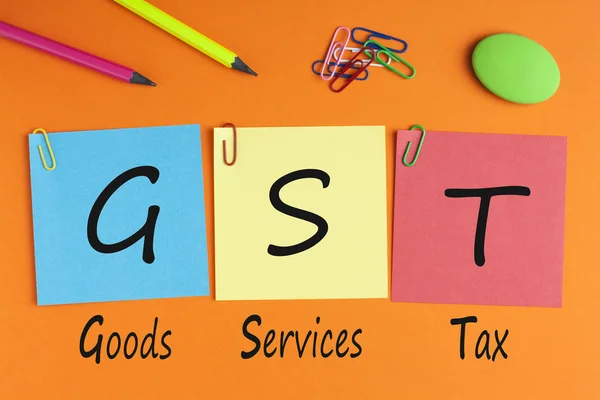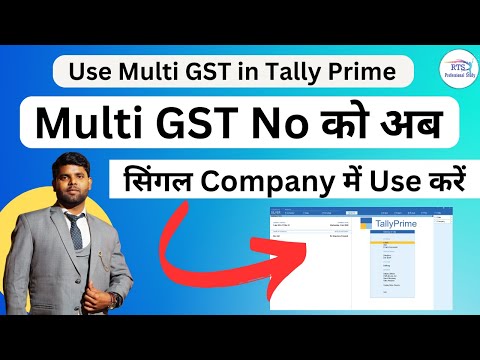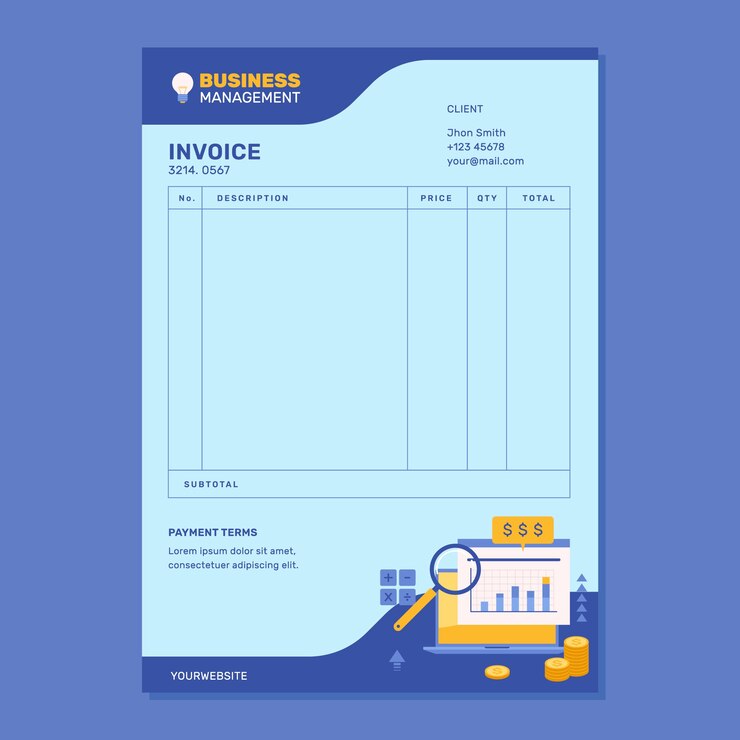Key Takeaways
- Unified GST Registration: Multiple branches or divisions can use a single GSTIN if part of the same legal entity.
- Option for Separate Verticals: Entities can opt for separate GST registrations for different business verticals if needed.
- Simplified Administrative Process: A single GSTIN helps streamline administration and compliance across branches.
- Effective Credit Management: Centralized GST registration enhances the management of input tax credits.
- Professional Advice Recommended: Consult with GST experts to ensure proper compliance and maximize tax benefits.
The Goods and Services Tax (GST) has revolutionized the tax structure in India, streamlining the myriad of indirect taxes into a single tax system. For businesses operating across different states, understanding the implications of GST registration is crucial.
GST Registration for Businesses with Branches in Different States
Businesses with operations in multiple states face unique challenges under GST. If the turnover exceeds the legal threshold limit of Rs 20 lakhs (Rs 10 lakhs for special category states like North-Eastern states), which varies from state to state, registration is necessary. Registering in each state can offer compliance benefits and facilitate smoother interstate operations.
What Are the Provisions Regarding GST Registration?

The GST law mandates that any business supplying goods or services in more than one state must register in each state where they have a significant business presence. This requirement ensures that tax revenue is properly distributed among the states.
- Mandatory Registration: Businesses with an annual turnover exceeding Rs 20 lakhs (Rs 10 lakhs for North-Eastern and hill states) are required to register for GST. This threshold varies for service providers and goods suppliers.
- Voluntary Registration: Businesses below the turnover threshold can choose to register for GST voluntarily. This allows them to claim input tax credits.
- Inter-State Operations: Any business engaging in inter-state supply of goods or services must register for GST, regardless of turnover. This provision ensures that tax is collected in the place of consumption.
- Casual Taxable Persons and Non-Resident Taxable Persons: Those who occasionally undertake transactions involving the supply of goods/services in a state/territory where they do not have a fixed place of business must register under GST. This category also includes non-residents who supply goods or services to residents.
- Agents and Input Service Distributors: Agents of a supplier, input service distributors, and those who pay tax under the reverse charge mechanism are also required to register for GST.
- Unique Identification Number (UIN): Entities that may not be taxable under GST, such as UN bodies, embassies, and other notified persons, must obtain a Unique Identification Number (UIN) to claim refunds for taxes paid on their purchases.
- Composition Scheme: Small taxpayers with an annual turnover of up to Rs 1.5 crore (Rs 75 lakhs for NE and hill states) can opt for the GST Composition scheme, where they pay GST at a fixed rate of turnover. This simplifies compliance but restricts the taxpayer from claiming input tax credit.
- Online Registration: GST registration is primarily an online process through the GST portal. This simplifies the process, making it more accessible and efficient.
- Penalties for Non-Compliance: If you don’t register for GST in accordance with the law, you could face fines and penalties equal to a portion of the tax you owe.
Is Separate GST Registration Needed for Different Branches?
Yes, separate GST registration is needed for different branches of a business if these branches are operating in different states in India. According to the GST law, each operational unit in a distinct state must have its own GST registration. This requirement is crucial for several reasons:
- State-specific compliance: GST is a destination-based tax, meaning the tax is collected by the state where goods or services are consumed. Each state in India has slightly different rules and rates for various categories of goods and services. Separate registrations ensure that the correct tax amount is collected and remitted in each state, adhering to local regulations.
- Input Tax Credit: Having separate GST registrations allows branches in different states to claim input tax credits independently. This means that the tax paid on inputs can be offset against the output tax liability in the same state, which would not be possible if the branches are registered under a single GST number across multiple states.
- Tax Invoices: Separate registrations facilitate the issuance of tax invoices with the correct state’s GSTIN, which is necessary for the proper allocation and utilization of input tax credits by customers in that state.
- Financial Management: Separate GST registrations help in better financial management and accounting for each branch. It makes it easier to track the profitability and tax compliance of each branch independently.
- Legal Requirement: Legally, businesses are required to register each operational unit that has a taxable presence in different states under GST. Failing to register each branch separately can lead to compliance issues, including penalties and fines.
Overall, separate GST registration for branches in different states helps maintain transparency in tax administration and ensures compliance with the unique tax laws of each state. It also aids in the logistical aspect of managing tax credits and liabilities efficiently across the business’s widespread operations.
The AAR’s Ruling on Multi-State GST Registration

The Authority for Advance Rulings (AAR) has clarified that separate GST registrations are necessary for businesses operating branches in different states. This decision impacts how businesses plan their tax strategies and operations.
Key Aspects of AAR’s Ruling on Multi-State GST Registration:
- Separate Entity Principle: The AAR has upheld the principle that each branch of a business operating in a different state is treated as a separate entity for GST purposes. This means that each branch needs to have its own GST registration if it qualifies as a distinct place of business according to GST law.
- Place of Business: The rulings have clarified that any place where a taxpayer has operations which involve supply of goods or services would typically qualify as a ‘place of business’ under GST. This includes warehouses, offices, or any location where the taxpayer maintains inventory or staff.
- Inter-State Supply: The AAR has repeatedly stated that businesses making inter-state supplies must register in each state from which such supplies originate. This is necessary to ensure the correct levy and collection of Integrated Goods and Services Tax (IGST), which is applicable to inter-state transactions.
- Centralized Billing Issues: In cases where companies have centralized billing from one state but operations in multiple states, the AAR has ruled that separate registrations are still required for each operational state. This ruling is crucial for compliance, especially in ensuring the right state receives the applicable SGST (State GST) and CGST (Central GST).
- Input Tax Credit (ITC): One significant implication of these rulings is on the Input Tax Credit. The AAR has affirmed that ITC can only be claimed in the state where the input services or goods are received, and therefore, registration in each operational state facilitates the proper utilization and accounting of ITC.
Multi-GST Registration in Different States and Union Territories

Obtaining multiple GSTINs is a straightforward process but requires careful documentation. Each state may have its own requirements and procedures, making it essential for businesses to stay informed.
When is Multi-GST Registration Required?
A business must register for GST in every state or union territory where it conducts operations if it meets any of the following criteria:
- Inter-state Supply: Any business involved in supplying goods or services across state borders must have GST registrations in each of those states.
- Physical Presence: Businesses with offices, warehouses, or manufacturing facilities in multiple states need separate GST registrations for each location
- Voluntary Registration: Even if it is not mandatory, a business may opt for registration to take advantage of the input tax credit.
Benefits of Multi-GST Registration
- Input Tax Credit Utilization: Allows businesses to claim input tax credits in the state where the inputs are consumed, which helps in reducing the overall tax liability.
- Compliance: Ensures compliance with the GST laws of each state, avoiding legal issues and penalties.
- Enhanced Business Operations: Facilitates smooth intra-state transactions and billing, improving overall business efficiency.
Process of Registration
The process for GST Registering in multiple states involves the following steps:
- GST Portal: Businesses need to apply for GST registration through the official GST portal. Each state’s registration requires a separate application.
- Documentation: Required documents typically include PAN card of the business, proof of business registration, identity and address proofs of promoters and directors, and proof of business address in each state.
- Verification: The respective state’s GST office conducts a verification process on the application after submission. This may include a physical verification of premises.
Challenges of Multi-State Registration
- Administrative Burden: Managing multiple enrollment can be administratively demanding and time-consuming.
- Compliance Costs: Increased costs related to professional services for maintaining compliance in various states.
- Reconciliation Challenges: Reconciling input tax credits across different states can be complex.
Best Practices
- Centralized Accounting System: Utilize a robust, centralized accounting system to manage and reconcile GST filings and input tax credits efficiently across states.
- Regular Updates: Stay updated with the GST regulations of each state, as they can differ and may be updated periodically.
- Professional Assistance: Consider hiring GST consultants or legal experts who specialize in multi-state GST compliance to navigate the complexities.
Examples of When Multiple GSTINs are Required
Multiple GSTINs (Goods and Services Tax Identification Numbers) are required for businesses under specific circumstances to ensure compliance with the GST law in India. Here are some common scenarios where obtaining multiple GSTINs is necessary.

For example, a company with warehouses in three different states will require three GST registrations. This ensures compliance and allows for the claiming of input tax credits locally.
- Businesses Operating in Multiple States
A business that has operations, such as sales or service delivery, in more than one state must obtain a separate GSTIN for each state. This is essential because GST is a destination-based tax, and each state’s tax authorities manage their own GST collections.
Example: A company headquartered in Maharashtra with branches in Karnataka and Delhi will require separate GSTINs for each of these states to manage local sales and claim input tax credits accurately.
- Branches and Separate Business Verticals
If a business has multiple branches or different business verticals within the same state that involve distinct operations or accounting processes, it may opt for separate GSTINs for each branch or vertical.
Example: A manufacturing company in Gujarat that also has a separate division for trading within the same state might opt for different GSTINs to simplify tax filing and accounting processes.
- Warehouses/Distribution Centers
Companies with distribution centers or warehouses in different states need to enroll for GST in each state where they have such facilities. This is because the transfer of goods between states triggers GST implications.
Example: An e-commerce company with fulfillment centers in Hyderabad, Mumbai, and Kolkata would need GST registrations in Telangana, Maharashtra, and West Bengal, respectively.
- Stock Transfers
Inter-state stock transfers between branches of the same company are treated as taxable supplies under GST. Therefore, businesses need to have GST registrations in the states from where and to where the goods are transferred.
Example: A furniture manufacturer transfers stock from its Tamil Nadu factory to its retail outlets in Kerala and Andhra Pradesh. It would require GST registrations in Tamil Nadu, Kerala, and Andhra Pradesh.
- Registration Threshold Exceedance
If a business operates primarily in one state but starts operations in another state where it exceeds the turnover threshold for GST registration, it must obtain a GSTIN in the new state.
Example: A service provider based in Rajasthan starts offering services in Uttar Pradesh and crosses the GST turnover threshold in Uttar Pradesh. A separate GST registration in Uttar Pradesh becomes mandatory.
- Event-Based or Exhibition Sales
Businesses that participate in events or exhibitions where goods are sold in states where they do not usually operate may require temporary GST registration for the duration of the event.
Example: A handicraft manufacturer from Kerala participating in a crafts fair in Delhi for two months would need a temporary GST registration in Delhi.
Conclusion
Multi-state GST registration is essential for businesses operating across state lines. Businesses with branches in different states need to carefully manage their GST registrations and ensure that each branch complies with the respective state’s GST regulations. This not only helps in fulfilling legal obligations but also assists in streamlined tax handling and utilization of tax credits across the company’s operations.
💡If you want to pay GST dues with a credit card and experience the convenience and possibility of earning rewards on payments, then download PICE business payment app now.
FAQs
Is GST registration necessary for each state where my business operates?
Yes, businesses operating in multiple states must obtain GST registration for each state where they have a physical presence or make taxable supplies. This is required to comply with state-specific GST laws and facilitate the proper collection and remittance of taxes.
Can I use one GSTIN for multiple states if I have branches in different states?
No, you cannot use one GSTIN for multiple states. Each state where you have a branch or conduct business transactions requires a separate GST registration. This ensures that GST is collected and credited appropriately according to state-specific regulations.
What are the implications of not registering for GST in each state where it is required?
Failing to register for GST in any state where it is required can lead to non-compliance penalties, including fines and interest on due taxes. It also prevents the business from legally collecting GST from its customers, leading to further financial liabilities.
How does having multiple GSTINs affect input tax credits?
Having multiple GSTINs allows a business to claim input tax credits in the state where the input goods or services are received. This state-specific claim mechanism ensures accurate tax credit utilization and compliance, preventing losses that may arise from centralized tax credits.
What documents are required for GST registration in multiple states?
For GST registration in multiple states, you typically need to provide the PAN of the company, proof of business registration, address proof for each location, and identity and address proofs of the promoters or directors. Each state might have additional specific requirements that need to be fulfilled.








